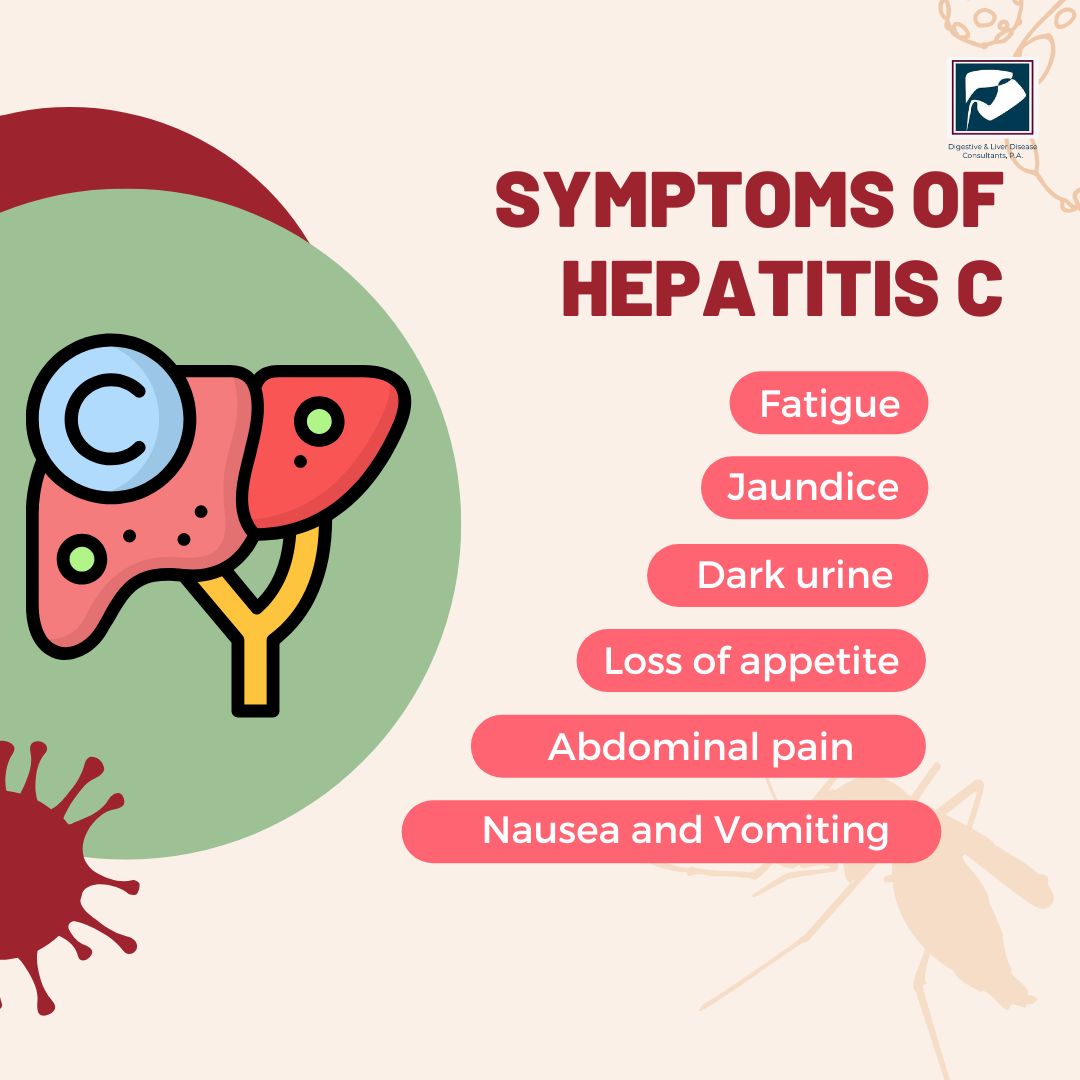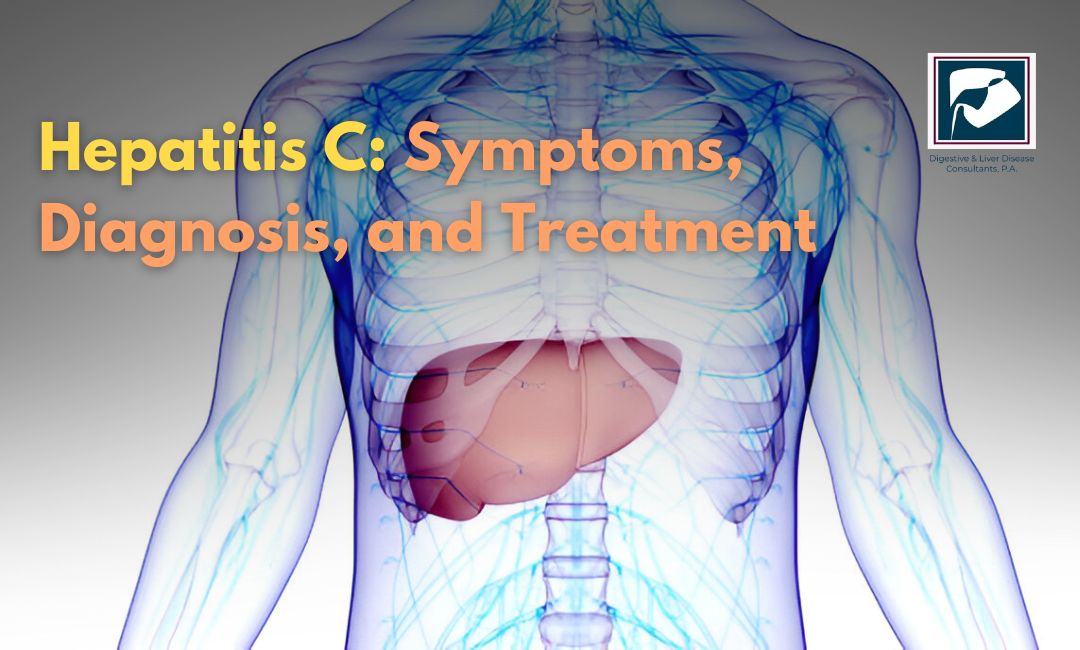Hepatitis C is a viral infection that primarily affects the liver. It is caused by the Hepatitis C virus (HCV) and can lead to chronic liver disease if left untreated. This condition often goes unnoticed in its early stages, which is why it’s crucial to understand the symptoms, diagnosis, and available treatments for Hepatitis C.
Symptoms of Hepatitis C
The tricky part about Hepatitis C is that it doesn’t show symptoms right away. In many cases, people infected with the virus might not experience any noticeable symptoms for years, or even decades. When symptoms do appear, they can vary from person to person. Common symptoms include:
Fatigue: Feeling unusually tired or weak, even after a good night's sleep, is a common sign.
Jaundice: A yellowish tint to the skin or eyes, which happens when the liver isn't functioning properly.
Abdominal pain: Especially in the upper right side of the abdomen, where the liver is located.
Nausea and vomiting: These can be related to liver damage or inflammation.
Dark urine: Often due to excess bilirubin in the bloodstream, which is a byproduct of the liver's processing of red blood cells.
Loss of appetite: This could occur along with other digestive issues.
Joint pain: Some people with Hepatitis C experience pain in their joints.
These symptoms can be subtle or mistaken for other illnesses. The virus often doesn't show up until the liver has sustained significant damage. That's why it's important to get tested, especially if you're at higher risk of exposure.

How Hepatitis C is Diagnosed
To diagnose Hepatitis C, doctors typically use a combination of blood tests and medical history. The first step is a screening test for the Hepatitis C virus (HCV), which looks for the presence of antibodies indicating prior exposure to the virus. However, just because someone has antibodies doesn’t mean they are still infected.
To confirm an active infection, a polymerase chain reaction (PCR) test is needed. This test measures the amount of HCV RNA (genetic material from the virus) in the blood, which indicates how much of the virus is present.
Once the diagnosis is confirmed, the doctor will assess the degree of liver damage. This can involve additional tests, such as:
Liver function tests: These measure how well the liver is functioning.
Imaging tests: Ultrasound or elastography may be used to look for signs of liver damage or cirrhosis.
Liver biopsy: In some cases, a small sample of liver tissue may be taken to assess the extent of damage, though this is less common now due to advanced imaging techniques.
Early detection is key to preventing further damage, so it’s crucial to get tested if you have any risk factors, such as sharing needles, receiving blood products before 1992, or having unprotected sex with an infected person.
Treatment for Hepatitis C
The good news is that Hepatitis C is treatable, and advances in medicine have made treatment more effective than ever before. The goal of treatment is to cure the infection, stop liver damage, and reduce the risk of complications, including cirrhosis (scarring of the liver) and liver cancer.
Direct-acting antivirals (DAAs) are the main treatment for Hepatitis C today. These medications target specific steps in the virus's life cycle, preventing it from multiplying and spreading. DAAs are typically taken as pills once a day for 8 to 12 weeks, depending on the type of HCV infection and the extent of liver damage.
The treatment is highly effective, with cure rates of 95% or higher in many cases. However, it’s important to note that even after a successful treatment, some people may need long-term follow-up care, especially if there was significant liver damage before treatment began.
In addition to antiviral medications, lifestyle changes can help support liver health and manage the symptoms of Hepatitis C. These include:
- Avoiding alcohol: Alcohol can worsen liver damage.
- Eating a healthy diet: Focus on a balanced diet rich in fruits, vegetables, whole grains, and lean proteins.
- Regular exercise: Helps maintain a healthy weight and reduces strain on the liver.
- Getting vaccinated: Hepatitis C patients should get vaccinated for Hepatitis A and B, as these can add extra stress on the liver.
For those with advanced liver disease, such as cirrhosis, more intensive treatments may be needed, including a liver transplant in extreme cases. But with early diagnosis and the right treatment, most people with Hepatitis C can live a normal, healthy life.
How to Prevent Hepatitis C
The best way to prevent Hepatitis C is to reduce the risk of exposure to the virus. Here are some tips to help prevent the spread of Hepatitis C:
- Avoid sharing needles or personal items like razors or toothbrushes.
- Use protection during sexual activity, especially if you are at higher risk.
- Get tested if you think you may have been exposed to the virus, or if you fall into any high-risk groups.
- Ensure blood products are screened: In the U.S., all donated blood is now screened for Hepatitis C.
Conclusion
Hepatitis C is a serious liver infection, but with early diagnosis and treatment, it can be managed effectively. If you are experiencing any symptoms of Hepatitis C or are at risk of exposure, don’t wait—seek medical attention as soon as possible. The treatments available today are highly effective and can help prevent long-term damage to your liver.
If you think you may be at risk for Hepatitis C or have been experiencing any related symptoms, don’t hesitate to schedule an appointment with one of our specialists at DLDC (Digestive & Liver Disease Consultants P.A).






